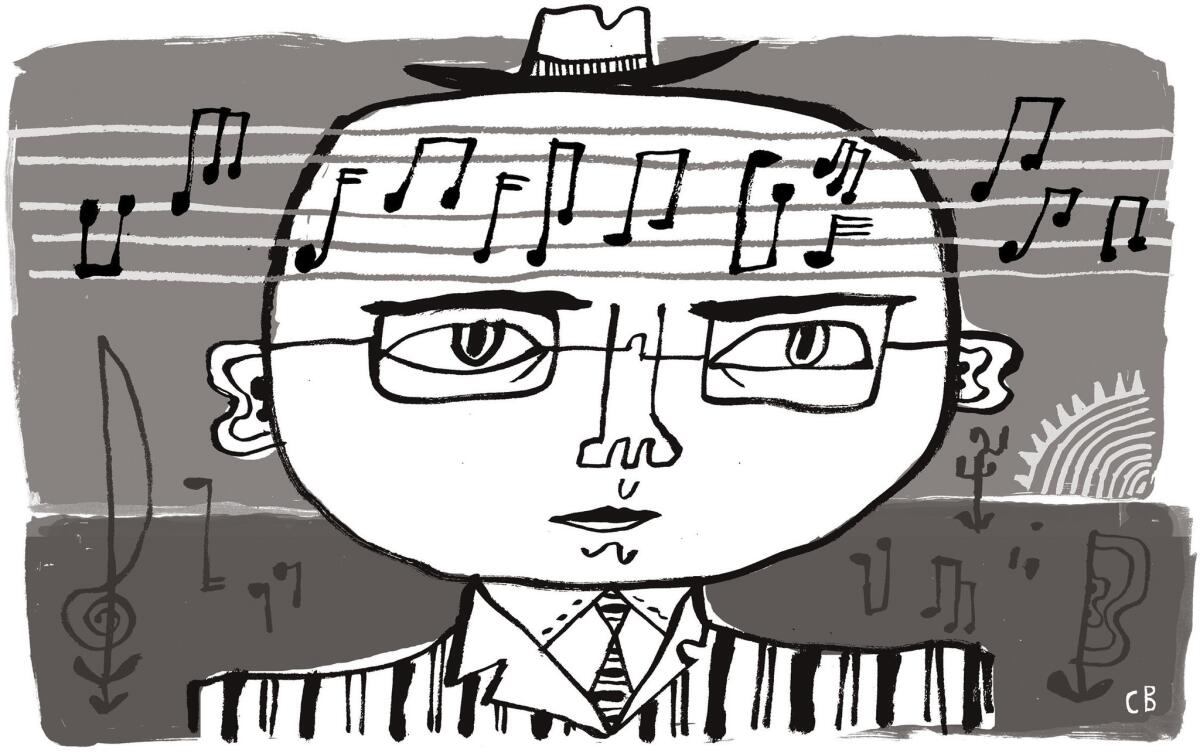Oliver Sacks & music: On brainworms, hallucinations and sonic overload

Writer and neurologist Oliver Sacks, who died on Sunday at age 82, spent his life wondering on the myriad connections among biology, thought, emotion and perception.
For those of us who obsess over the how and why of music, Sacks’ work on sound and its effects on the brain – and vice versa – was particularly illuminating. His book on the subject, “Musicophilia: Tales of Music and the Brain,” remains essential reading for those who want to understand the mechanics of music. Through bountiful research and mesmerizing case studies, Sacks addressed topics including music and amnesia, music therapy, musical prodigies and those who suffer from debilitating aural hallucinations.
Sacks’ writing in “Musicophilia” on internal music loops, for example, which he succinctly described as “the brainworms that arrive unbidden and leave only on their own time,” is endlessly fascinating for anyone ever tortured by the Baha Men’s “Who Let the Dogs Out” or Smash Mouth’s “All Star.”
SIGN UP for the free Indie Focus movies newsletter >>
“Brainworms are usually stereotyped and invariant in character,” he wrote as part of a section called “Haunted by Music.”
“They tend to have a certain life expectancy, going full blast for hours or days and then dying away, apart from occasional afterspurts. But even when they have apparently faded, they tend to lie in wait; a heightened sensitivity remains, so that a noise, an association, a reference to them is apt to set them off again, sometimes years later.”
The neurologist’s curiosity on the foundation of music appreciation might answer questions about your husband’s baffling obsession with Dave Matthews. The doctor described a patient who, after being struck by lightning, became focused on classical music after a life of ambivalence.
The man started buying sheet music and taught himself how to play Chopin, but it didn’t stop there. Soon his head was filled with new original compositions. Even when he wanted to play Chopin, recounted Sacks, “his own music ‘would come and take me over. It had a very powerful presence.’”
Wrote Sacks: “The music was there, deep inside him – or somewhere – and all he had to do was let it come to him. ‘It’s like a frequency, a radio band. If I open myself up, it comes.’”
One chapter is devoted to research into what separates the memory capacities of professional musicians from civilians. Another explores Sacks’ own experiences with having “music on the mind.” Why, he wondered, did a song he hadn’t heard in decades pop back into his head seemingly unbidden? What prompted grim music to recur as his brother was sick?
Sacks connected ideas from past to present, understood the profound changes in listening that arrived with the invention of recorded sound. In the book, he quoted a Mark Twain story from 1876 about what Twain described as “jiggling rhymes” that “took instant and entire possession of me. All through breakfast they went waltzing through my brain.”
Sacks used Twain’s experience to bridge the centuries: “When Mark Twain was writing in the 1870s, there was plenty of music to be had, but it was not ubiquitous. One had to seek out other people to hear (and participate in) singing – at church, family gatherings, at parties.”
Experiencing music took intention, wrote Sacks. But no more. “With recording and broadcasting and films, all this changed radically. Suddenly music was everywhere for the asking, and this has increased by orders of magnitude in the last couple of decades, so that we are now enveloped by a ceaseless musical bombardment whether we want it or not.”
Moving into the present, Sacks tackled the shift that came with portable music, especially the iPod, describing the now-normal reality of living “immersed in daylong concerts of our our choosing, virtually oblivious to the environment.”
But, he added, we’re all aurally overwhelmed whether wearing ear buds or not. “[F]or those of us not plugged in, there is nonstop music, unavoidable and often of deafening intensity, in restaurants, bars, shops and gyms. This barrage of music puts a certain strain on our exquisitely sensitive auditory systems, which cannot be overloaded without dire consequences.”
Is there a better argument for a moment of silence?
Follow Randall Roberts on Twitter: @liledit
MORE:
Black Sabbath announces final tour, ‘The End,’ with creepy video
Janet Jackson releases track listing and details of ‘Unbreakable’
Tyler, the Creator denied entry into Britain after ‘unacceptable behaviours’
More to Read
The biggest entertainment stories
Get our big stories about Hollywood, film, television, music, arts, culture and more right in your inbox as soon as they publish.
You may occasionally receive promotional content from the Los Angeles Times.











